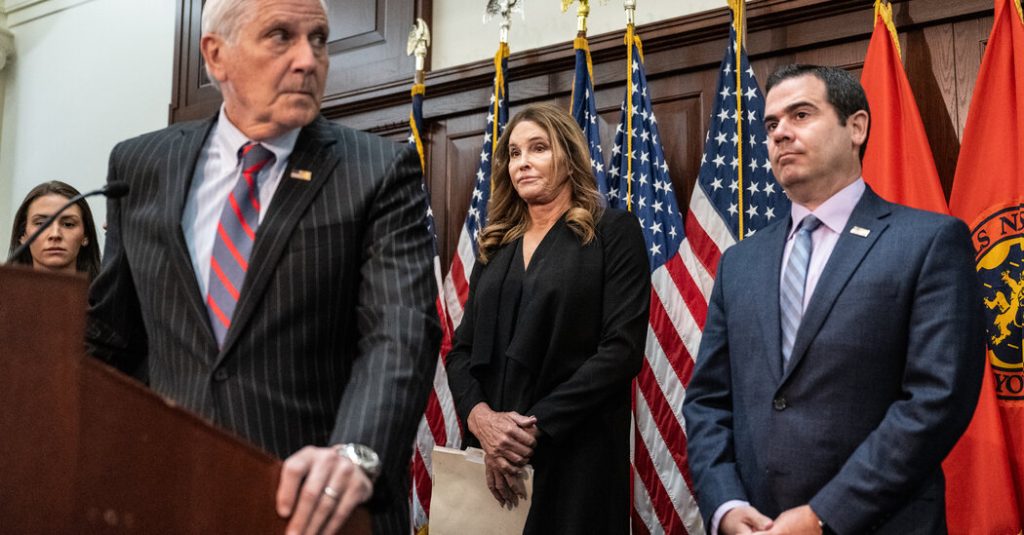In a recent ruling, a Long Island county order that prohibited transgender women from participating in women’s sports teams at county-owned sports facilities was struck down by a New York court. Justice Francis Ricigliano of Nassau County Supreme Court determined that the county executive, Bruce Blakeman, exceeded his authority when he imposed the ban, as the right to pass such laws is reserved for legislative bodies, not chief executives. This decision was celebrated by civil rights groups, who viewed the ban as harmful and discriminatory towards transgender individuals.
Gabriella Larios, a staff attorney at the New York Civil Liberties Union, welcomed the court’s decision, stating that it undermines the attempt by county executive Blakeman to promote harmful stereotypes about transgender women and girls. Blakeman, however, has expressed his intention to appeal the ruling and defend the integrity of women’s sports. The ban had drawn national attention and was supported by prominent figures such as Caitlyn Jenner, amidst a broader conservative push to restrict the rights of transgender individuals across the country.
The executive order issued by Blakeman required sports leagues or organizations seeking permits to use county parks department facilities to designate their teams as male, female, or coed based on members’ assigned sex at birth. The ban did not extend to transgender boys and men participating in male teams. Justice Ricigliano clarified in the ruling that permit seekers retain the freedom to include individuals on their teams based on any criteria not prohibited by law. The ban faced legal challenges from civil rights groups, with the Long Island Roller Rebels adult roller derby league filing a lawsuit against the county, arguing that the ban violated state civil rights law.
In addition to the lawsuit from the Long Island Roller Rebels, the state attorney general, Letitia James, issued a cease and desist letter condemning the ban as “transphobic and blatantly illegal.” Threatening legal action if the order was not rescinded, James was joined by the New York Civil Liberties Union in challenging the discriminatory ban. In response to James’s actions, Blakeman initiated his own federal lawsuit against the attorney general, seeking a ruling from a federal judge on the executive order. However, this federal case was dismissed by Judge Nusrat Choudhury in April, leaving the state court ruling as a significant victory for advocates of transgender rights in New York.
The broader landscape of laws affecting transgender athletes across the United States was highlighted in the context of the Nassau County ban. A total of 24 states have enacted laws to prevent transgender athletes from participating in sports aligned with their gender identity, reflecting a trend among conservative lawmakers to limit the rights of transgender individuals. As debates over transgender rights continue to unfold at both the state and federal levels, the decision by the New York court represents a noteworthy development in the ongoing struggle for equality and inclusion for transgender individuals in the realm of sports and beyond.
Overall, the legal battle over the Nassau County ban on transgender individuals participating in women’s sports teams underscores the broader societal conversations and political tensions surrounding transgender rights in the United States. The court’s ruling to strike down the ban and affirm the rights of transgender individuals to participate in sports based on their gender identity marks a significant moment for advocates of equality and inclusion. As the legal challenges and debates surrounding transgender rights persist, the fight for fair and equal treatment of all individuals, regardless of their gender identity, remains a central issue in the ongoing struggle for civil rights and social justice.


